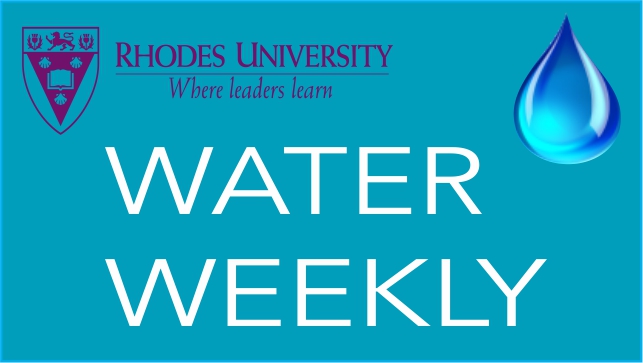
Welcome to our latest edition of Water Weekly. A lot has happened since last week. Please see the latest updates on the water crisis below.
THE GOOD NEWS
Waainek and James Kleynhans Water Treatment Plants
Both the east and west water treatment plants are on schedule with regards to upgrades and repairs. Those in the East would’ve noticed that their water supply has been restored over the last week. There has been a lot of headway made on the James Kleynhans water treatment plant including completed repairs on two pumps, four filters and electrical connections. It is currently pumping 10 Mega litres a day for the first time in months. Furthermore, its ability to recover waste water has improved which leads to less wasted water. Waainek is also operating optimally, but because Settler’s Dam is at 8.3%, the water supply remains limited.
Water as a human right
Rhodes University’s Equity and Institutional Culture Office hosted a panel discussion regarding water as a human right on Friday 22 March. The panel consisted of Dr David Gwapendza (PhD in Hydrology at the Institute for Water Research), Dr Nosiphiwe Ngqwala (Senior Lecturer at Rhodes University’s Pharmacy Faculty), Mzukisi Mpahlwa (Makana Municipality Executive Mayor), Andrew Lucas (Director: Water Regulation and Use at Department of Water Affairs) and Dr Chrissie Boughey (Deputy Vice Chancellor: Student Affairs at Rhodes University).
Getting water from East to West
All plans are on track for mobilising the water supply between the east and west sides of town. In preparation for Settler’s Dam running dry (which is currently anticipated to be mid-April) the plan is to use the underground pipe connecting the two sides of town so that both sides will have water supply, albeit intermittently. A brand new pipe that will increase the water flow from east to west is currently being discussed.
Boreholes
To assist with the town’s water supply, especially when Settler’s Dam runs dry, several boreholes have been drilled all across town. The last report shows that 11 boreholes have been drilled and 11 more have been marked for drilling. The drilled boreholes are in various stages of readiness – they are either still being fitted with pumps, filtration systems or are still being tested for drinking suitability. Although some of the boreholes contain high iron and manganese, the municipality has found that this is not the case with all the boreholes. Filtration systems will be put in to filtrate the water to meet SANS standards.
During the “Water as a human right” talk, some attendees requested timelines for the borehole execution plan. Rhodes University followed up with Makana municipality regarding this request and we were informed that since Gift of the Givers are the ones managing the borehole drilling project, it is them who have this information. As such, Rhodes University is currently following up with Gift of the Givers regarding these timelines.
THE NOT-SO-GOOD NEWS
Ongoing drawbacks
Vandalism, theft and sabotage continue to be an ongoing issue. So do labour issues. However, now that our two water treatment plants are on track, the municipality will be able to focus more of their attention on these issues.
Load shedding
Makana Municipality is currently in talks with Eskom to try and resolve the load shedding problem by being granted permission to handle the town’s load shedding internally. This would mean Makana has somewhat control over how to shed the mandated electricity load so that they can adequately plan outages according to the water system needs.
Going forward
The Rhodes University community is reminded that it is not “business as usual”. We are in the throes of a significant water crisis and only if everyone does their part, will we overcome this. The good news is that money and resources that are allocated to the improvement of city’s infrastructure will ensure that we will shortly have one of the most stable water systems in the country.
Thank you for working through these difficult times with us. We appreciate all of the assistance that has been offered to us thus far. Please keep the conversation about #SaveOurWater going at communications@ru.ac.za.
